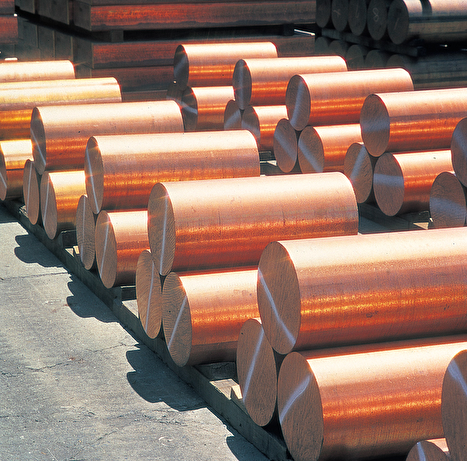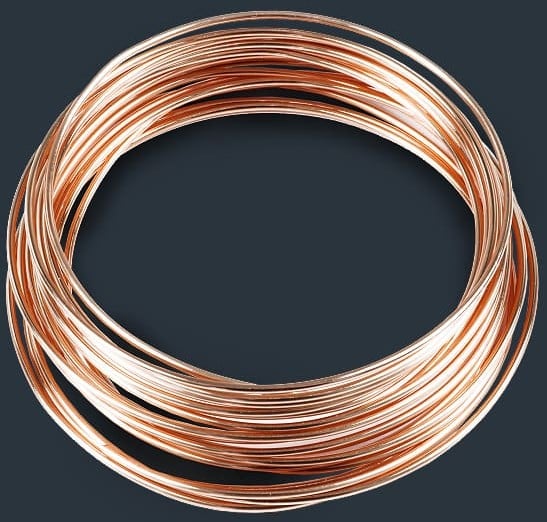Discovering the Diverse Applications of Copper Products in Modern Industries
From enhancing the effectiveness of electric systems to playing an important role in renewable energy technologies, the convenience of copper is obvious. As markets increasingly prioritize advancement and sustainability, the diverse applications of copper necessitate a closer evaluation, especially concerning their possible effect on future environmental methods and technical improvements.
Electric Applications of Copper
Copper is an important product in the electric industry, accounting for around 60% of the overall demand for non-ferrous metals worldwide - Copper Products. Its remarkable electric conductivity, which is nearly twice that of aluminum, makes it the favored selection for a vast array of electric applications. From electrical wiring systems in commercial and domestic structures to high-voltage power transmission lines, copper makes certain performance and integrity in power shipment
In enhancement to circuitry, copper is indispensable to the production of electric parts such as generators, electric motors, and transformers. These parts utilize copper's thermal conductivity and malleability, essential for warmth dissipation and efficient efficiency. Furthermore, copper's resistance to deterioration enhances the life-span and longevity of electric systems, making it an economical service in the long-term.
The growth of renewable resource sources, such as solar and wind power, has further raised the demand for copper in electrical applications. As industries change towards lasting power solutions, copper's role ends up being a lot more essential. Overall, the flexibility and efficiency qualities of copper solidify its condition as a foundation product within the electric sector, driving innovation and efficiency across various applications.
Plumbing and Piping Solutions
In modern pipes systems, the selection of products dramatically influences both performance and long life. Copper has become a favored choice as a result of its distinct buildings, including deterioration resistance and antimicrobial features. These characteristics make sure that copper piping continues to be risk-free and durable for transporting drinkable water, an important consideration in domestic and business applications.
Among the essential benefits of copper in plumbing is its ability to hold up against heats and stress, making it appropriate for a variety of applications, from warm water systems to heating and cooling down networks. Furthermore, copper's adaptability enables easier installment in complex piping layouts, lowering the risk of leakages and failures.
One more noteworthy advantage is copper's long life-span, frequently surpassing half a century with appropriate upkeep. This longevity not only decreases replacement expenses but likewise adds to sustainable practices by reducing waste. In addition, copper's recyclability aligns with modern ecological requirements, advertising a round economy within the pipes industry.
Copper in Renewable Resource
The adaptability of copper expands beyond pipes applications, playing an essential duty in the eco-friendly energy sector. In solar panels, copper is utilized in photovoltaic or pv cells and circuitry, promoting effective energy conversion and transmission.

In addition, as the international need for electrical vehicles (EVs) increases, copper's role in battery systems and charging facilities becomes a lot more considerable. The material's ability to conduct power successfully is important to the efficiency of EV batteries, boosting array and billing rate.
Copper's Function in Electronic devices
Electronic devices producing depends heavily on copper's extraordinary residential properties, specifically its high electric conductivity and thermal effectiveness. These attributes make copper an ideal option for a vast array of electronic elements, including adapters, motherboard, and electrical wiring. The metal's ability to efficiently transfer electric signals makes sure very little energy loss, which is crucial in high-performance electronic gadgets.
Additionally, copper's thermal conductivity plays a considerable role in warmth dissipation, safeguarding sensitive parts from overheating. visite site This is particularly essential in modern-day electronic devices, where small styles lead to raised warm generation. Copper is also preferred for its pliability and ductility, permitting it to be quickly shaped into complex designs that fulfill the demands of innovative digital applications.
With the increase of consumer electronic devices, telecommunications, and electrical vehicles, the demand for copper in the electronic devices sector proceeds to expand. As advancements in modern technology evolve, copper stays integral to accomplishing greater efficiency and dependability in digital products. Its recyclability additionally boosts its appeal, as manufacturers seek sustainable options without compromising high quality. Hence, copper continues to be a cornerstone material in the ever-expanding field of electronic devices.
Innovative Utilizes in Production

One noteworthy application remains in additive production, where copper-based materials are used in 3D printing processes. This permits the development of complex geometries and lightweight elements, specifically in the aerospace and automobile markets. Additionally, copper's thermal conductivity makes it a suitable selection for warmth exchangers, enhancing efficiency in industrial air conditioning systems.
In addition, the rise of wise manufacturing has seen the unification of copper in IoT tools, where its conductive capabilities support innovative picking up modern technologies. In the world of renewable energy, copper is critical in the manufacturing of photovoltaic panels and wind turbines, helping with a lot more effective power conversion and circulation.
As sectors pursue sustainability and advancement, copper's flexibility and performance continue to place it as a critical product, driving innovations in manufacturing and adding to the advancement of smarter, extra effective items.
Final Thought
In summary, copper products show impressive convenience throughout different contemporary sectors. Copper Products. Their exceptional conductivity enhances electrical applications, while deterioration resistance makes certain integrity in pipes. The integral function of copper in sustainable energy and its essential feature in electronic devices emphasize its importance click here for info in progressing lasting methods. Additionally, cutting-edge usages in manufacturing highlight copper's flexibility and withstanding significance. Jointly, these applications show copper's critical payment to technical progress and commercial effectiveness in modern society.
From improving the efficiency of electric systems to playing an essential duty in renewable energy technologies, Discover More Here the flexibility of copper is obvious. As industries progressively focus on development and sustainability, the varied applications of copper call for a closer evaluation, specifically concerning their potential effect on future ecological techniques and technological developments.
The growth of renewable power resources, such as solar and wind power, has actually further enhanced the need for copper in electric applications. Generally, the versatility and performance attributes of copper strengthen its standing as a keystone product within the electric industry, driving development and effectiveness throughout different applications.
The adaptability of copper prolongs beyond plumbing applications, playing a vital role in the renewable power field.